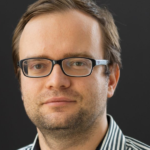With the advent of AI, which has made it possible to input millions of data points and apply logical algorithms into mega computers, current research will inevitably speed up. The work of thousands of scientists may soon be compressed into ever-shorter periods of time—even a day. There are whole departments and institutes around the world investigating this, as well as, I strongly suspect, Big Pharma. The day we “cure” aging is perhaps not far off.
What could go wrong? Plenty
First, even as we search for this coveted cure, it would be irresponsible not to ask: Does Earth really have the natural resources to support an ever-expanding population? No matter which side of the fossil fuel debate you are on, these resources will eventually run out. Since solar and wind are insufficient, we are now turning back to nuclear. Even if it continues to prove safe and reliable, nobody can predict how long it will take to safely build enough nuclear plants to support an ever-expanding population that relies on more and more data centers hungry for power. Nor has anyone sufficiently delved into the question of who would pay for it and what the expected ROI might be.
Similar dilemmas exist for all infrastructures that will be needed to support a population that, as mathematics would have it, could double every 20 years. Highways, airports, housing—which is already in short supply—could not keep up. I for one am deeply skeptical that we could keep up with the demand, or even the basic needs.
Then there are the social issues such as entitlements. If people choose not to work beyond 40 years, how long could they be carried on Social Security or Medicare? Where would funding for these programs come from? Could life sentences for crime still be reasonable? Would a sociopathic murderer who never ages ever become less dangerous to society? How about lifetime terms for our Supreme Court Justices? Would that still be fair? These issues would have to be examined and perhaps revised as well. If such a “cure” was found, how would it be shared with populations worldwide, including those less privileged who may not have access to said cure?
Finally, consider the infinitely human and universal cycle of life defining the shared experiences that bind us as a species on planet Earth. The joy of birth, of watching our children grow up as we grow older. The sweet nostalgia for the things we could do when we were young that lends us greater depth and perspective as we mature. Though painful at times, the mere fact of aging brings infinite meaning that many would not want to give up.
I will leave you with one more quote that I believe is relevant. J. Robert Oppenheimer, the father of the atomic bomb said, “The deep things in science are not found because they are useful; they are found because it is possible to find them.”
More reading:
The opinions expressed in Fortune.com commentary pieces are solely the views of their authors and do not necessarily reflect the opinions and beliefs of Fortune.









